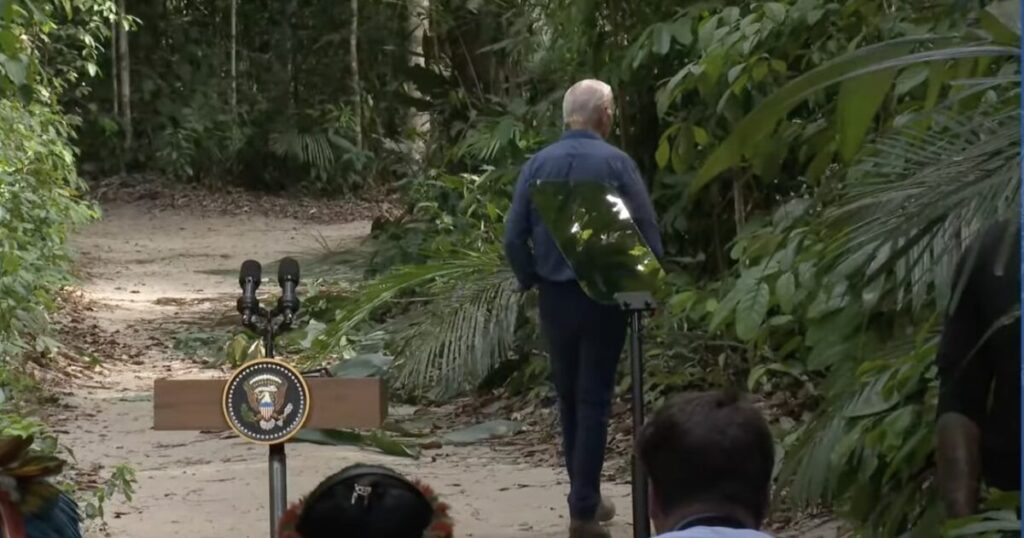At the recent APEC Summit in Manaus, Brazil, President Joe Biden appeared to be out of his depth amidst global leaders, highlighting the perception of a declining administration. Attendees noted Biden’s noticeably confused demeanor as he stood isolated while other leaders engaged in discussions and exchanged pleasantries. His lack of engagement and awareness was emphasized when organizers positioned him in the back row during official photographs, leading to further criticism of his standing on the world stage. Such optics have fueled arguments that the Biden regime is waning and struggling to command respect in the international arena.
The criticism surrounding Biden’s performance at the summit reflects a broader sentiment that his presidency is faltering. Observers pointed to troubling patterns of confusion and disconnection that have become emblematic of his leadership style. Reports suggested that Biden’s age and perceived cognitive decline contributed to widespread concerns regarding his ability to lead effectively, particularly in high-stakes environments such as international summits. The juxtaposition of his visible discomfort against the backdrop of a vibrant, engaged diplomatic community illuminated the growing disconnect between the United States and its allies.
In conjunction with his awkward interactions, Biden delivered a speech addressing climate change, a topic he has emphasized throughout his presidency. However, the speech fell flat as he failed to engage with the media or take questions, further emphasizing his disengagement from the proceedings. Following his remarks, Biden left the podium and wandered into the Amazon rainforest, disappearing from the public eye and leaving observers speculating about his whereabouts. This moment encapsulated the criticisms aimed at his leadership, with commentators arguing that such instances contribute to a narrative of an administration in crisis.
Moreover, the optics of Biden’s attendance at a climate change-focused event in the Amazon were significant, considering the environmental implications faced globally. As world leaders gathered to discuss pressing issues related to climate, Biden’s performance was juxtaposed with the urgency of the moment. His speech was intended to reinforce the United States’ commitment to climate action; however, the confusion and embarrassment on display detracted from the message. The disarray suggested a failure to effectively communicate essential goals and priorities at a pivotal moment for global policy.
Critics have asserted that the perceived ineptitude of Biden’s leadership could have lasting ramifications for American foreign policy. The isolation Biden experienced at the APEC Summit may suggest a broader trend, where other countries may no longer view the U.S. as a dominant force in global affairs. There’s a fear that without strong leadership, the U.S. risks losing its influence on critical issues, such as climate change. Furthermore, Biden’s inability to assert himself could embolden rivals and diminish the effectiveness of diplomatic efforts going forward.
As the Biden regime approaches what many view as its final days, the concern over lost opportunities and an ineffective leadership style resonates deeply. Advocates for a rejuvenated diplomatic approach argue that a recalibrated focus on clear communication and effective engagement is necessary to restore trust and credibility on the global stage. Whether Biden can recalibrate his approach and emerge as a confident leader remains uncertain, but the implications of his current standing at international summits like APEC will undoubtedly reverberate long after this administration has passed.

